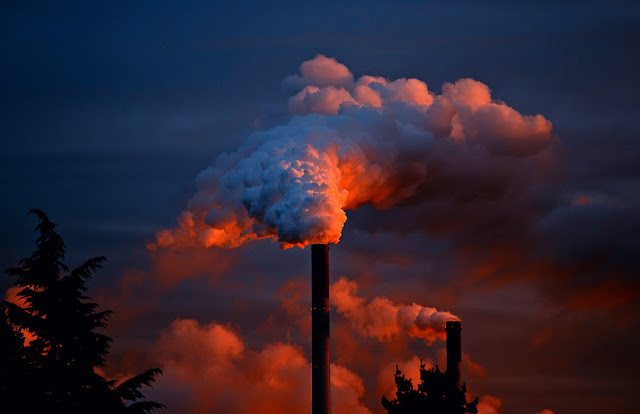Harnessing Renewable Energy for a Sustainable Future
Harnessing Renewable Energy for a Sustainable Future
In an era marked by increasing environmental awareness and the need to curb the spiralling cost of energy, the pursuit of renewable energy sources has taken centre stage. Nations across the world have joined forces in a collective effort to combat the alarming rise in greenhouse gases, which are rapidly pushing our planet's temperature to unprecedented levels. As we delve into this crucial subject, let's explore the transformative impact of renewable energy and the global initiatives that aim to mitigate the impending climate crisis.
The Global Greenhouse Gas Challenge
Greenhouse gases, including water vapour (H2O), carbon dioxide (CO2), methane (CH4), nitrous oxide (N2O), ozone (O3), chlorofluorocarbons (CFCs), and hydrofluorocarbons (HCFCs and HFCs), play a pivotal role in our planet's climate. They trap infrared radiation within Earth's atmosphere, contributing to the greenhouse effect. While rising temperatures may appear to benefit colder climates, they are harbingers of catastrophic events that threaten everyone.
Rising sea levels and melting glaciers, driven by global warming, loom as ominous challenges. The Intergovernmental Panel for Climate Change (IPCC) paints a grim picture, forecasting that by 2100, Earth's temperature could surge by over 6 degrees Celsius. This scenario would unleash devastating consequences, including a three-foot rise in sea levels, displacing millions. However, the critical threshold stands at just 2 degrees Celsius, a mere 1.2 degrees above current temperatures. This realization spurred the creation of the Paris Agreement.
The Paris Agreement: A Global Commitment
In 2016, the Paris Agreement emerged within the United Nations Framework Convention on Climate Change (UNFCCC) as a beacon of hope. Its primary objective is to limit global temperature increases to no more than 2 degrees Celsius above pre-industrial levels, with an aspirational target of 1.5 degrees Celsius. This ambitious endeavour received support from 189 UNFCCC members, with the notable exceptions of Iran and Turkey.
Former U.S. President Barack Obama ardently championed the agreement during his tenure, but the landscape shifted with the election of President Donald Trump in 2017. Although the U.S. could not officially withdraw from the agreement until November 2020, its policies already diverged from the accord's principles. Under the Paris Agreement, countries are obligated to submit regular reports outlining their efforts to combat global warming. While there are no direct consequences for failing to meet targets, the agreement employs a 'name and shame' approach.
The Kyoto Protocol: A Precursor
Before the Paris Agreement, the Kyoto Protocol laid the foundation for international climate action. Formed after the Kyoto Summit in 1997, this treaty prompted countries to revise their energy practices. Greenhouse gas emissions during 1990 served as the baseline, and each nation committed to specific reduction targets.
The European Union, for example, ratified the protocol, pledging to reduce emissions by 8% between 2008 and 2012. The UK, within the EU, set additional targets to source 20% of energy from renewables by 2020. However, the Kyoto Protocol's mixed success highlighted structural shortcomings, including the exclusion of developing countries and the absence of binding consequences for non-compliance. This led to calls for positive incentives to drive future adherence.
The UK's Pioneering Commitment
The United Kingdom has emerged as a global leader in climate action. In 2008, it introduced the Climate Change Act, committing to a 34% reduction in greenhouse gas emissions by 2020.
This goal was exceeded by more than 10%, prompting a revision to a net-zero target by 2050 in 2019. Interim carbon budgets, spanning 2008 to 2032, mandate a 57% reduction in emissions from 1990 levels by 2030.
The UK has made significant progress, with emissions in 2018 already 44% lower than 1990 levels. Remarkably, this progress occurred alongside a two-thirds expansion of the UK's economy during the same decade. While the UK surpassed the targets in the first two carbon budgets, meeting the fourth (2023-27) remains uncertain.
Sustainable Building Practices in the UK
To promote environmentally-friendly construction, the UK introduced The Code for Sustainable Homes in 2006. This initiative outlined guidelines for sustainable building practices and awarded ratings based on nine categories, including energy efficiency, water, and ecology.
Although the code was initially mandatory in some areas, it has since become voluntary. These green building practices offer a promising avenue for households, businesses, and industries to simultaneously save money, conserve energy, and contribute to the planet's well-being.
The UK's Climate Change Roadmap
In tandem with the Paris Agreement, the UK has implemented key directives to combat climate change. These milestones include:
- 1997: Kyoto Summit: Meeting with other nations to establish emissions reduction targets.
- 2001: Climate Change Levy: A tax on commercial businesses supplying certain utilities, aiming to reduce emissions.
- 2002: Ratification of Kyoto Protocol: Commitment to emissions reductions below 1990 levels.
- 2002: Renewables Obligation (RO): Ensuring energy suppliers source power from renewables.
- 2005: EU Emissions Trading Scheme (ETS): A cap-and-trade system to reduce carbon emissions.
- 2006: Low Carbon Buildings Programme: A grant scheme for renewable energy installations.
- 2008: Carbon Emissions Reduction Target (CERT): Encouraging energy suppliers to reduce CO2 emissions.
- 2008: Climate Change Act: Legal commitments to reduce emissions by 34% by 2020 and net zero by 2050.
- 2009: Community Energy Saving Programme (CESP): Promoting energy-saving solutions in low-income areas.
- 2010: CRC Energy Efficiency Scheme: Requiring large businesses to reduce energy consumption.
- 2010: The Energy Act: Supporting energy-saving measures and renewable energy implementation.
- 2010: Feed In Tariff (FIT): Incentivizing low-carbon technology and renewable energy generation.
- 2011: Renewable Heat Incentive (RHI): Rewarding the use of renewable or low-carbon heat sources.
- 2013: Energy Company Obligation (ECO): Promoting energy efficiency and offsetting emissions.
- 2014: Government Electricity Rebate (GER): Refunding electricity customers to mitigate environmental costs.
These initiatives collectively shape the UK's proactive approach to combat climate change and transition toward a sustainable energy future.
As we navigate the complex landscape of renewable energy and climate action, it's clear that the UK and the global community are at a crossroads. The choices we make today will determine the fate of our planet and future generations.
Through sustained commitment, innovative solutions, and collective action, we can harness renewable energy to create a sustainable and thriving world for all.




Comments
Post a Comment
Please respect others users and refrain from posting racist, abusive, pornographic or spam-related comments. All such comments will be deleted and the poster may be reported to the relevant body.